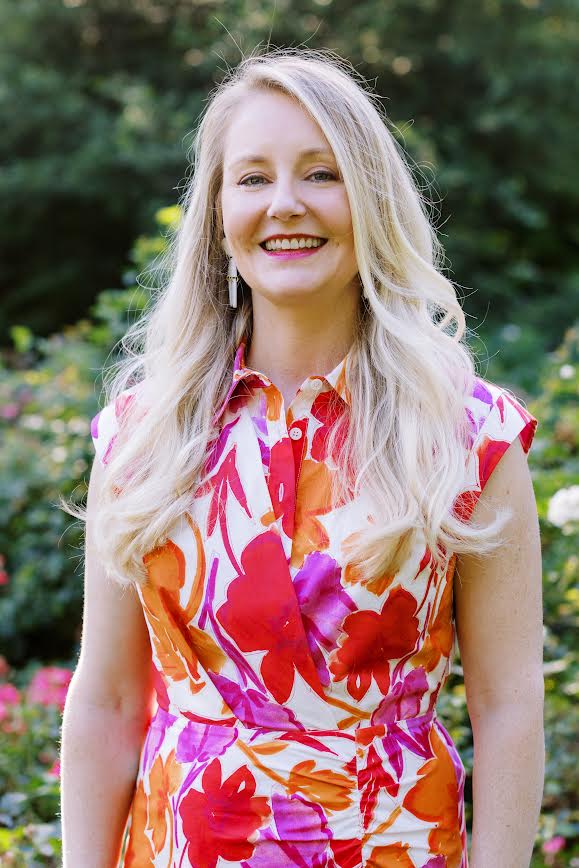8 Key Things to Tell Teens Who Are Going into High School

Rising high schoolers are one step closer to the self-discovery and independence of adulthood. Statistics have linked a high school degree with a greater chance at job attainment, homeownership, a higher salary, and even personal and marital longevity. Regardless, they’re making decisions that will shape the rest of their life. As a pastor, TV host, and author, I have compiled eight essential markers from life experience to help shape their journey into a spectacular one. Whether you are a parent, youth worker, mentor, or friend, I hope these markers will serve as meaningful conversation starters.
1. Pay attention to longing.
I wrote a book on life purpose following a life juncture of my own. Longing is a distinct feeling that something is missing. Our Creator has hardwired each of us for a purpose. When we ignore it, our internal circuit often feels frayed. Unhappiness and depression can be signals that we are overlooking something important about ourselves, perhaps to please someone else. Ask them: Is there something that they feel God has called them to do? Does it unexpectedly keep coming to their mind? Encourage them to make time for introspection and honest conversations with the Author of their heart.
2. Start living your purpose now.
God designed each of us to live in such a way that obedience will make our hearts sing. There is no one-size-fits-all model as to what that obedience will look like. This is a time in their life to experiment with different possibilities as they discern their heart call. A researcher out of Stanford University believes that the prevalent challenge of youth today isn’t stress; it’s meaninglessness. When we are doing something that gives our life meaning, a certain amount of stress can be instructive as we press toward our goal. Think of someone who is nervous but called to onstage performance; they will become more fluent and comfortable with practice. The opposite is true when we’re busy with things that we do not find meaning in. An essential element to coming-of-age is having the opportunity to perform activities that are life-giving and life-affirming for that person. Offer age-appropriate channels for them to develop their gifts.
3. Don’t shy away from healthy risk.
The risk that’s linked to immediate gratification is often unhealthy and rather common. Healthy risk, however, frequently requires a short-term sacrifice for a long-term goal. Healthy risk is a calculated response to God’s call after introspection that’s rooted in faith, not fear. It is an invitation for adventure from the hand of God, who can be trusted. Even if the outcome looks different than what we imagined, it will still thrust us forward toward our purpose. We worship a God who works all things for our good (Romans 8:28). Can you think of a story of how God used risk in your life to propel you forward? Share it with them—start planting seeds. Real-life examples can inspire them to leave their comfort zone and respond to faith’s call.
4. Choose faith.
After graduating from college, I moved out of the Midwest for a job in New York City. Shortly afterward, 9/11 happened. I found myself surrounded by devastation and clung to my faith. I discovered that faith is like the roots of a tree; the deeper the roots, the firmer the foundation. My faith provided me with hope, a refuge, and an invitation to agency that I couldn’t find anywhere else. God used that tragedy to spur me to seminary, just as God will use events in their life to shape their trajectory too. Remind them to always choose faith, not fear.
5. The people you choose to surround yourself with matter.
I witnessed the healing power of community in the wake of 9/11, and I’ve learned that whom we surround ourselves with daily matters too. Consider two questions. First, are they surrounding themselves with people who cause them to rise higher, or who cause them to compromise? Scripture says, “As iron sharpens iron, so one person sharpens another” (Proverbs 27:17). The company we keep should prompt us to become better people, not worse. Second, are they investing in people who unequivocally have their back? If not, encourage them to find that person or people. Scripture says, “One who has unreliable friends soon comes to ruin, but there is a friend who sticks closer than a brother” (Proverbs 18:24). We’re made to need community—that’s not a weakness, but a strength. Support them to choose wisely.
6. Lead from the heart.
I had the privilege of interviewing New York Times bestselling author, Rachel Macy Stafford, for my TV show recently. Rachel’s vulnerability endears her to others—she even made me teary on air. She models heartfelt honesty in relationships and encourages others to do the same. Author Brené Brown says, “No vulnerability, no courage,” yet it’s not hard to find the opposite on a Twitter feed, newsreel, or in the halls of their school. While it feels risky to be vulnerable, it’s also risky not to be. Being known in a relationship, finding a circle of safe people, and modeling the kind of change we want to see in the world offers a special kind of fulfillment. My hope is that we’re raising youth who can shine Christ’s light by doing exactly that—our world especially needs it now.
7. The most important determining factor for future success is self-control.
I lament as a guest on a recent podcast that character is often an overlooked element in society’s recipe for success. While it might be easier to focus on tangibles like GPA, athletic awards, and other accolades, faith teaches us about the importance of intangible growth like character too. Interestingly, science affirms the importance of character for success. The famous Marshmallow Experiment of the 1960s and its subsequent follow-ups have concluded that the number one factor indicative of future success is self-control. Meanwhile, self-control is also one of the fruits of the Holy Spirit that faith helps us build (Galatians 5:22-23). When youth tune into what faith teaches and practice discipline, they’ll experience God’s best for their lives as they press toward their goals.
8. Be mindful of screen and sleep time.
Self-control is a good segue to this final marker. Increased screen time has been linked to greater anxiety and depression in teens. My show guest Rachel Macy Stafford encourages her audience to watch for “red flag behaviors.” Red flag behaviors, which can vary from person to person, are negative effects of too much screen time. Examples include irritability, comparison with others, and withdrawing from family spaces more than usual. They indicate the need to walk away from the screen and engage in soul-filling behaviors instead, like time with family or a pet. While limiting screen time can be helpful, increasing sleep time is too. Statistics say that teens aren’t getting enough sleep—Penn Foster found that only 15% are. One of the best ways to reset and prepare for their purpose is to feed their body one of its basic needs. Encourage them to form good habits, which can serve them for years to come.
This past year has been a challenging one with COVID. My hope is that one silver lining will be a deepened resiliency. What they have already been through is a lot, so help them remember that the next time they are faced with a hurdle. They can push through because they have pushed through before. Armed with these eight markers as well, my prayer is that their journey will be blessed with success, girded with hope, and indicative of the work of the living God through them.
Related: Listen to Our FREE New Parenting Podcast! Christian Parent/Crazy World with Catherine Segars is now available on LifeAudio.com. You can listen to the first episode right here:

Originally published June 21, 2021.







